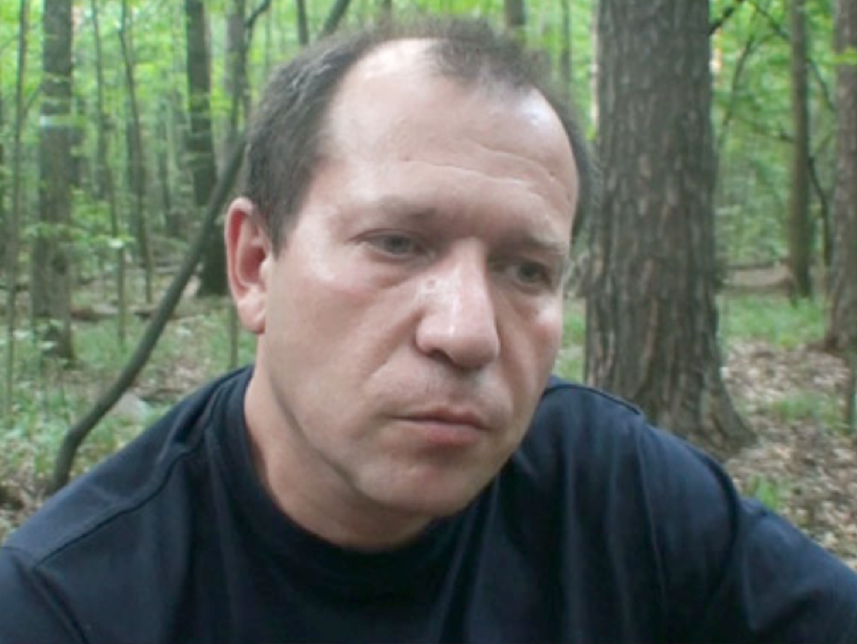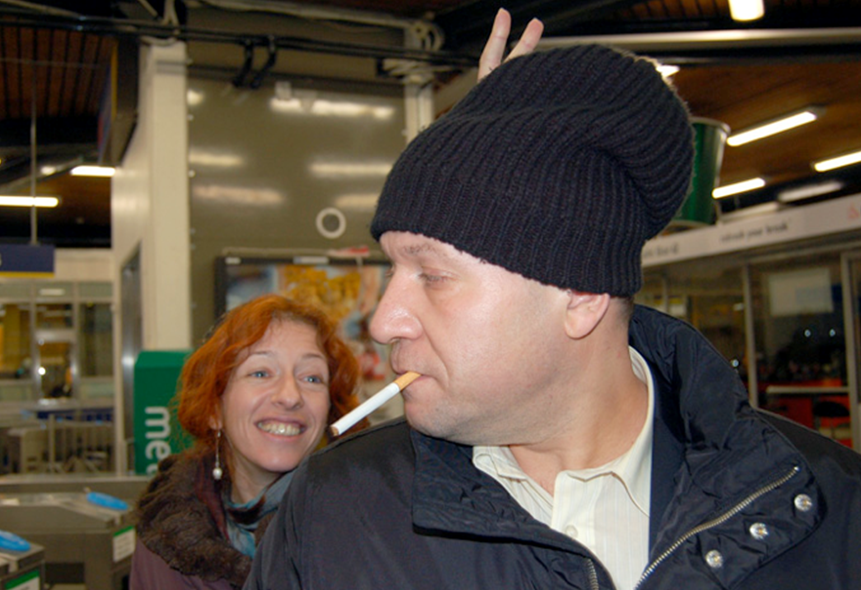
Igor Kaliapin, the chairman of the leading Russian human rights non-governmental organization Inter-Regional Committee Against Torture and one of the co-founders of the Committee’s Joint Mobile Group, received the Council’s of Europe Parliamentary Assembly Award for defense of human rights in 2011.
The Joint Mobile Group (JMG) has been working in the Chechen Republic since November 2009. This group consists of members of different Russian human rights organizations. It was created in order to receive credible information relating to human rights violations in the Chechen Republic.
Here are some quotes from a Report of Council of Europe Parliamentary Assembly: (http://www.assembly.coe.int/ASP/Doc/XrefViewHTML.asp?FileID=12481&Language=EN)
“The Committee on Legal Affairs and Human Rights notes that the situation in the North Caucasus region, particularly in the Chechen Republic, Ingushetia and Dagestan, constitutes the most serious situation in the entire geographical area encompassed by the Council of Europe in terms of human rights protection and the affirmation of the rule of law…. the human rights situation and the functioning of justice and democratic institutions continue to give cause for the gravest concern: successive disappearances of the government’s opponents and human rights defenders still remain widely unpunished and are not elucidated with due diligence… The committee notes that the European Court of Human Rights has condemned the Russian Federation for serious human rights violations in the region in over 150 judgments and stresses the importance of the prompt and complete implementation of these judgments.”
The Russian authorities’ answer to these concerns is typical:
Kaliapin was threatened with criminal proceedings for allegedly disclosing confidential information in his publications in support of victims of human rights violations by law enforcement officials in Chechnya. Kaliapin responded that he had revealed no secrets but just exposed the lack of effective investigation into the serious human rights violations.
This is the third attempt to open criminal proceedings against Kaliapin in order to stop his human rights activity.
According to the results of the poll made in 2010 by the web site Russian Reporter, Kaliapin was recognized as the “most respected public figure in Russia.”
Igor just turned 45. He Igor Kalâpin was born October 13, 1967, in the city of Gorky, now Nizhny Novgorod, Russia. In 1984, he graduated from high school, joined the Physics Faculty of the Polytechnic Institute. In 1986-88, served in the army. In 1988 he entered the evening branch of radiophysical Faculty of the Polytechnic Institute and at the Gorky Institute of chemistry, Academy of Sciences of the USSR. In 1989, began to take an active part in the democratic movement of Nizhny Novgorod. He was one of the leaders of the Nizhniy Novgorod branch of the “Democratic Union”, was one of the founders of the Nizhny Novgorod human rights society.was born October 13, 1967, in the city that in the Soviet time was called Gorky, and now is has reverted to its old name Nizhny Novgorod. In 1984, he graduated from high school and became a student of the Physics department of the Gorky Polytechnic Institute. In 1986-88 he served in the army. In 1988 he started working at the Gorky Institute of Chemistry. In 1989, time of Perestroika, he began to take active part in the democratic movement of Nizhny Novgorod. He was one of the leaders of the Nizhniy Novgorod branch of the “Democratic Union”, was one of the founders of the Nizhny Novgorod human rights society.
“Once I had a hand in changing the way my country was living”, says Kaliapin in one of his interviews, “I always felt my responsibility for freedom and for the mess… for forgotten starving retirees and for the Chechen war”.
In 2000, Kaliapin became the initiator and leader of the new specialized non-governmental organization, the Committee Against Torture.
The Institute of Sociology of Russian Academy of Sciences conducted a study by questioning people on the streets. Twenty-one percent, every fifth Russian, at least once in his or her life had been beaten by police. They also conducted interviews in prisons. From 40% to 60% of prisoners (depending on the region of Russia) were tortured during an investigation!
“In our Nizhny Novgorod region”, said Igor Kaliapin in one of his interviews, “beating suspects during interrogations is okay. Simple beatings, electric shocks are a norm, but if hands, legs, something is broken, now that is bad. One cannot cripple a suspect. If a suspect is crippled by a policeman or, God forbid, killed, you can be sure that the responsible one will be punished. In Chechnya a policeman can kill a person and never think twice, and never be punished for that”.
“As a result of our work in the Nizhny Novgorod area more than 30 policemen were convicted for torture. But I can’t say that as a result something had changed in Russia”.
Not many people enjoy such respect and even admiration of their colleagues and friends as Igor Kaliapin does.
Tatiana Lokshina, a representative of the Human Rights Watch said:
“I am afraid of nothing when he is with me. There are people that allay your fear, because they are always able to defend you, will never do anything stupid, will never get overwhelmed with emotions, and will never leave you with unsolved problem. Unfortunately, there are not many people like that. Igor is definitely belongs to these rare people.

Tatiana Lokshina and Igor Kaliapin
According to Olga Sadovskaya, “the Committee against torture”, Nizhny NovgorodI absolutely trust him: if tomorrow he will tell me: “Sadovskaya, jump with 15 floors-do not be afraid, not razob′eš′sâ”, I believe. Once said-then and there Olga Sadovskaya, a member of the Committee Against Torture:
“I trust him absolutely; if tomorrow he will tell me ‘Sadovskaya, jump from 15th floor and fear not. You will come out without a scratch’, I’ll jump”.

